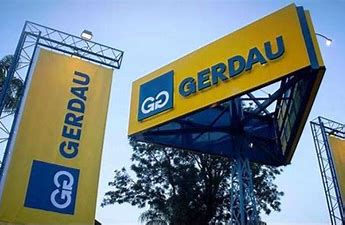Company will invest R$1.5bn in renewable energy to become more competitive in steel sector
11/30/2022
The announcement that Gerdau has entered into a partnership with asset-management Newave Capital (NW Capital) to purchase a 33.33% stake in Newave Energia puts the steelmaker at a new level in decarbonizing production, in addition to diversifying its business and making it more competitive in the steel sector.
The plan aims to develop new large-scale (greenfield) power generation projects with a capacity of approximately 2.5 GW, exclusively from solar or wind sources. Part of the production also aims to supply Gerdau’s industrial units in Brazil with renewable energy, as part of its commitment to reduce its greenhouse gas emissions, which are quite intense in electro-intensive sectors such as metallurgy.
Through Gerdau Next the company will invest up to R$1.5 billion of equity capital in Newave Energia, divided into two stages. In the first phase, the company will invest R$500 million in 2023, and the second phase will include an investment of up to R$1 billion, conditioned to the achievement of performance goals.
/i.s3.glbimg.com/v1/AUTH_37554604729d4b2f9f3eb9ad8a691345/internal_photos/bs/2022/T/G/R3foBYRXeAdLM2ovDYwA/30emp-200-next-b2-img01.jpg)
Juliano Prado — Foto: Claudio Belli/Valor
Juliano Prado, vice president of Gerdau and leader of Gerdau Next, told Valor that the business is based on the pillar of sustainability for the reduction of carbon emissions by 10% within ten years, seeking to reach 60% of energy needs through self-production. Today it is 25%.
In parallel, the company aims to reduce its greenhouse gas emissions (CO2e) of scopes 1 and 2 of its inventory, to 0.83 tonnes of CO2 per tonne of steel in 2031, a value approximately 50% lower than the global average of the steel industry.
“Today we have a designed and prospected pipeline of six greenfield energy parks. When these parks come into operation, or Newave acquires a new park, the plan is that 30% of the energy produced will go to our self-production. We are talking about Newave reaching close to 2.5 GW both in solar and wind”, he said.
The free energy market is a segment that the company is keeping an eye on to expand its business. Brazil currently has about 10,700 free consumers, but the government’s proposal that all consumers served at high voltage can opt to buy electricity from any supplier as of January 1, 2024, opens space for new competitors.
“The other 70% of the energy produced will be commercialized in the free market. We also want to have a leading role in having more accessible prices for businesses that want to buy from Newave Energia,” said Mr. Prado.
In the energy transition context, partnerships such as this one have been taking place more frequently in the electric sector, in which oil, metallurgy, and steel companies, for example, associate with other companies to have some competitive differential.
In Gerdau’s case, decreasing the cost of steel was one of the differentials to closing the deal. Besides being the most competitive in the country with a prominent place in the expansion of the system, subsidized energy sources such as solar and wind have contracting benefits to other conventional sources.
“This R$1.5 billion foreseen in our business plan for investments in Newave is equity capital. Another R$3 billion will come from the asset-management firm Newave Capital and XP, meaning we will also have third-party capital”, he states.
New projects usually have a higher risk, but with higher gains. And because it is strategic information, Mr. Prado does not reveal how much the investments will reduce production costs, but he stresses that the project gains are above the cost of capital with high double digits.
He sees the governance and the team as a differential advantage, with professionals from large energy companies, such as Siemens Gamesa and Echoenergia, among others.
This is not the only investment in renewables and the executive guarantees that it will not be the last. There are others, besides the production mix with scrap and charcoal that supply the carbonization plants in the pig iron and steel chain.
*By Robson Rodrigues — São Paulo
Source: Valor International

/i.s3.glbimg.com/v1/AUTH_37554604729d4b2f9f3eb9ad8a691345/internal_photos/bs/2022/E/u/QXpMKcQTebguAfg9PrzQ/executivo-gustavo-werneck-ceo-gerdau-cred-julio-bittencourt.jpg)
